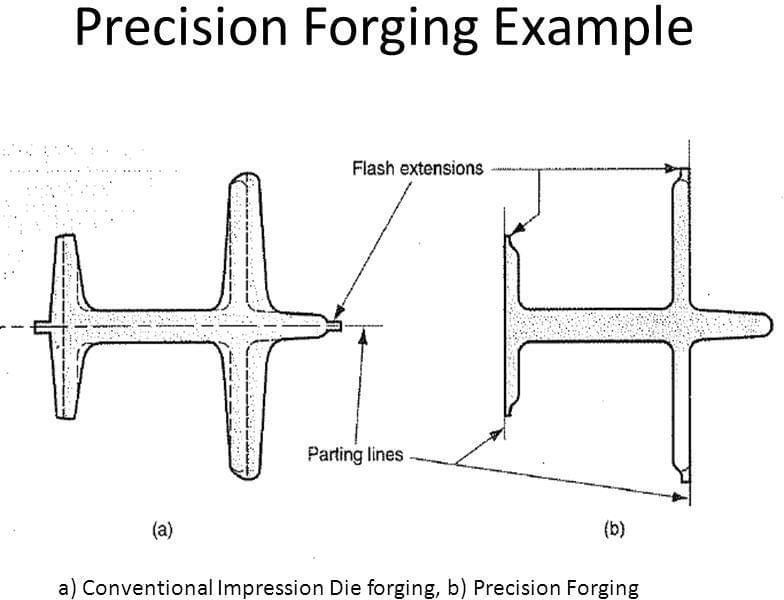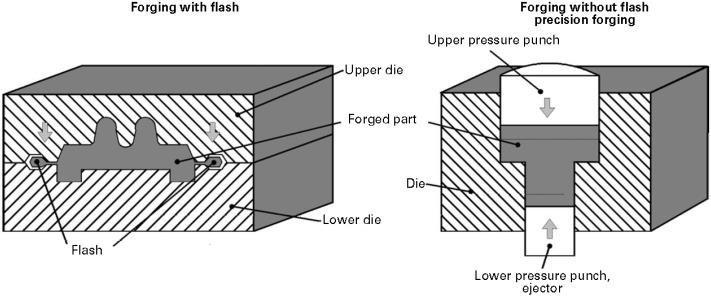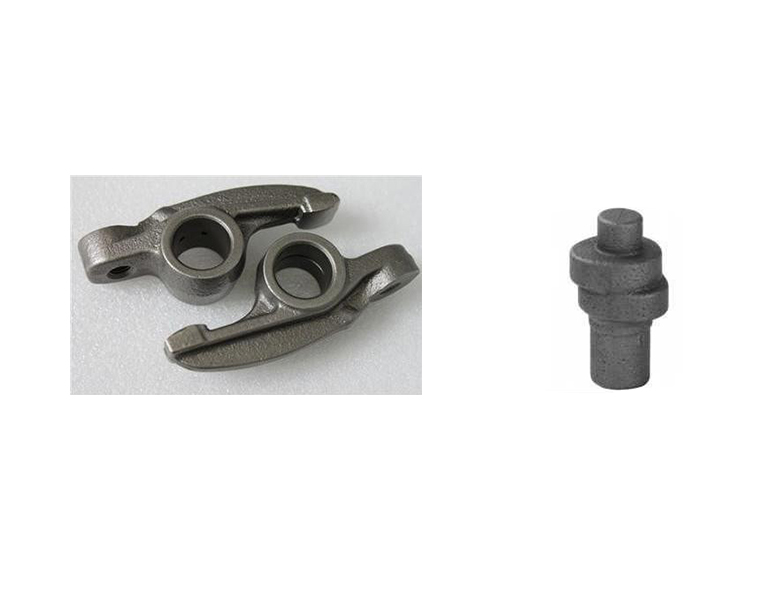

Precision forging is an innovative manufacturing process for the flash less, near-net shape production of high-performance components. Precision forging is where the blades are forged to close to the final form , with a final step of polishing required to improve the surface finish .
Outstanding material characteristics as well as a reduced process chain and a high material efficiency are the essential advantages of precision forging.
Precision forging is also called as Net-Shape or Near-Net-Shape Forging
This method is developed to minimize the cost and waste associated to post-forging operations. Cost savings are achieved from the reduction of material and energy, as well as the reduction of machining.
In the field of precision forging, a dimension will carry a different tolerance depending upon the form in which it is expressed. In the decimal inch system, a two place decimal (6.30 in.) will carry a tolerance of ±0.03 in. For greater precision a three place decimal should be used (6.300 in.)


Precision Forgings differ from Conventional Forgings in many ways. While Conventional forgings are typically machined on all surfaces, a Precision Forging is often characterized by very slight draft angles (0 to 1 degree), thin cross-sections, close tolerances, small radii, and excellent surface finishes.
This technique is applied to production of all Valve train components such as
GPP INDIA produces 1500 tonnes per annum with component weight from 0.05 kgs to 2 Kgs
